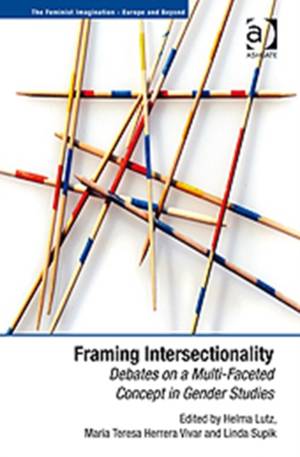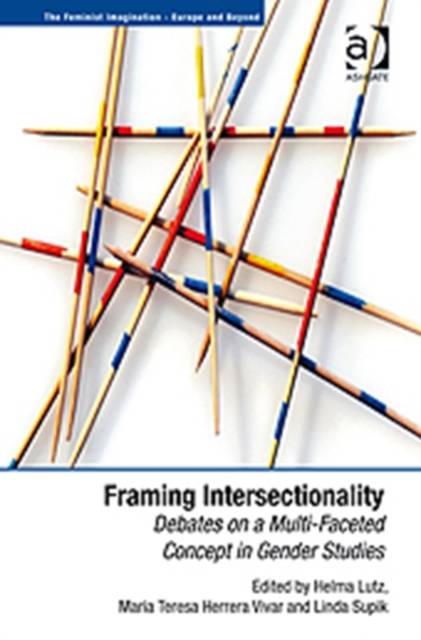
- Afhalen na 1 uur in een winkel met voorraad
- Gratis thuislevering in België vanaf € 30
- Ruim aanbod met 7 miljoen producten
- Afhalen na 1 uur in een winkel met voorraad
- Gratis thuislevering in België vanaf € 30
- Ruim aanbod met 7 miljoen producten
Zoeken
Framing Intersectionality
Debates on a Multi-Faceted Concept in Gender Studies
€ 59,45
+ 118 punten
Omschrijving
Originally conceived by Kimberlé Crenshaw in 1989 as a tool for the analysis of the ways in which different forms of social inequality, oppression and discrimination interact and overlap in multidimensional ways, the concept of 'intersectionality' has attracted much attention in international feminist debates over the last decade. Framing Intersectionality brings together proponents and critics of the concept, to discuss the 'state of the art' with those that have been influential in the debates that surround it. Engaging with the historical roots of intersectionality in the US-based 'race-class-gender' debate, this book also considers the European adoption of this concept in different national contexts, to explore issues such as migration, identity, media coverage of sexual violence against men and transnational livelihoods of high and low skilled migrants. Thematically arranged around the themes of the transatlantic migration of intersectionality, the development of intersectionality as a theory, men's studies and masculinities, and the body and embodiment, this book draws on empirical case studies as well as theoretical deliberations to investigate the capacity and the sustainability of the concept and shed light on the current state of intersectionality research. Presenting the latest work from a team of leading feminist scholars from the US and Europe, Framing Intersectionality will be of interest to all those with interests in gender, women's studies, masculinity, inequalities and feminist thought.
Specificaties
Betrokkenen
- Uitgeverij:
Inhoud
- Aantal bladzijden:
- 256
- Taal:
- Engels
- Reeks:
Eigenschappen
- Productcode (EAN):
- 9781409418993
- Verschijningsdatum:
- 28/04/2011
- Uitvoering:
- Paperback
- Formaat:
- Trade paperback (VS)
- Afmetingen:
- 156 mm x 233 mm
- Gewicht:
- 469 g

Alleen bij Standaard Boekhandel
+ 118 punten op je klantenkaart van Standaard Boekhandel
Beoordelingen
We publiceren alleen reviews die voldoen aan de voorwaarden voor reviews. Bekijk onze voorwaarden voor reviews.










